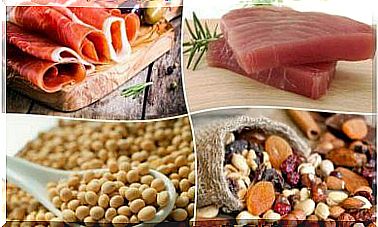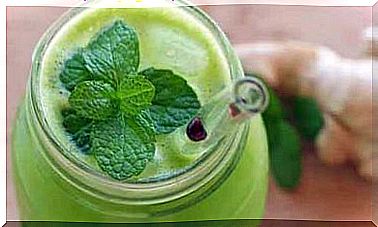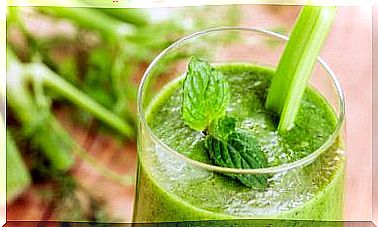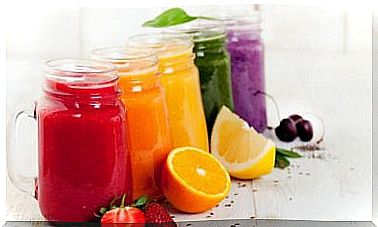Digestive Alcohols: Are They Recommended?
Although the supposed benefit of digestive alcohols is a general idea, we explain why it is not recommended to consume them after a heavy meal.

Do you know the digestive alcohols? They are credited with the ability to make digestion less cumbersome and improve this process. This ability is based on the supposed power of alcohol on stimulating gastric secretion from the stomach.
However, science does not prove this belief. There are no studies that demonstrate the beneficial ability of alcohol on digestive processes. In the spectrum of this type of alcohol, we find pacharan, orujo, herbal distillate or coffee liqueur, among others.
Alcohol is never recommended
The glass of alcohol is usually the icing on the cake after a heavy and plentiful meal. Despite traditional beliefs, alcoholic beverages have no beneficial effects on health.
Neither wine nor digestive alcohols have the capacity to improve any of the organic processes or to exhibit antioxidant capacity. On the contrary, the continued consumption of alcoholic beverages represents a health risk.
Alcohol consumption is a great stress for the liver, which is the organ responsible for metabolizing it. It also increases the risk of cancer of the mouth or gastrointestinal system. On the other hand, alcohol consumption is linked to the development of other types of cancer outside the digestive system and of complex diseases.
Although it is a drink with a strong cultural connotation, you must be aware that none of its presentations are beneficial for the body. WHO considers alcohol to be harmful and it should be treated as such. The best is to avoid its consumption or at least to do it in a punctual and controlled manner. Daily consumption of alcoholic beverages, even in small doses, poses a significant risk to health in the medium and long term.

Digestive foods to replace digestive alcohols
Besides alcohol, there are certain foods that have the ability to improve digestion or make it less heavy. One example is pineapple, which contains the enzyme bromelain in its composition. This enzyme is responsible for breaking down proteins and improving their absorption. Pineapple also has a diuretic effect which helps reduce water retention.
Foods high in fiber and water also help improve digestion. They increase the content of the fecal bowl and stimulate intestinal peristalsis. This is why it is generally good to end meals, especially larger ones, with a piece of fruit. In addition, there are certain effective pharmacological treatments to alleviate or prevent this type of situation.
It is important to avoid large meals
One of the golden rules of diet is not to eat more than what you need. This is why it is often better to avoid large meals rather than introducing digestive foods to reduce their impact on the body.
Excessively fatty foods slow down digestive processes. This is why it is good that part of our plate is made up of vegetables. They should be accompanied by a serving of protein cooked on the grill or in the oven. Finally, you can add a portion of complex carbohydrates if necessary.
It is important to avoid processed products, sauces, fried foods, and breaded foods. These foods delay and worsen digestion and have low nutritional value.
Giving priority to fresh foods improves the quality of digestion and of the diet in general. In addition, meals should be accompanied by water. Carbonated drinks can produce uncomfortable bloating which hinders digestive processes.

Digestive alcohols: conclusion
It is not advisable to introduce alcohol into the diet, whether it is digestive or not. The ideal is to avoid large and excessively fatty meals, but the best option after that is not the introduction of an alcoholic drink.
Regular consumption of this type of drink deteriorates health and increases the risk of suffering from a complex disease. In addition, at no time does it improve digestive capacity.
It is much more recommended to introduce a fruit after this type of meal. Pineapple can help break down protein and assimilate it in the small intestine.









